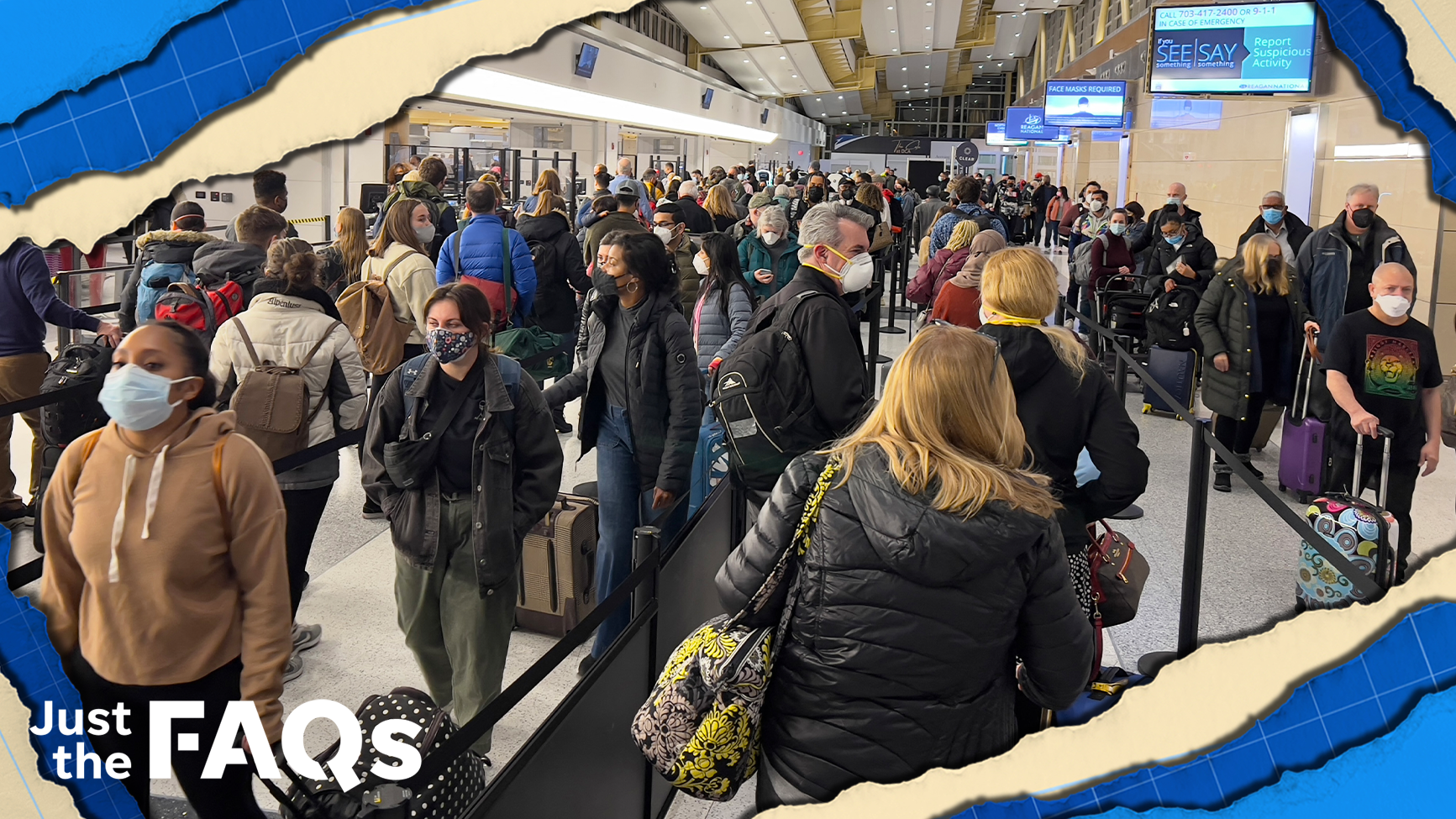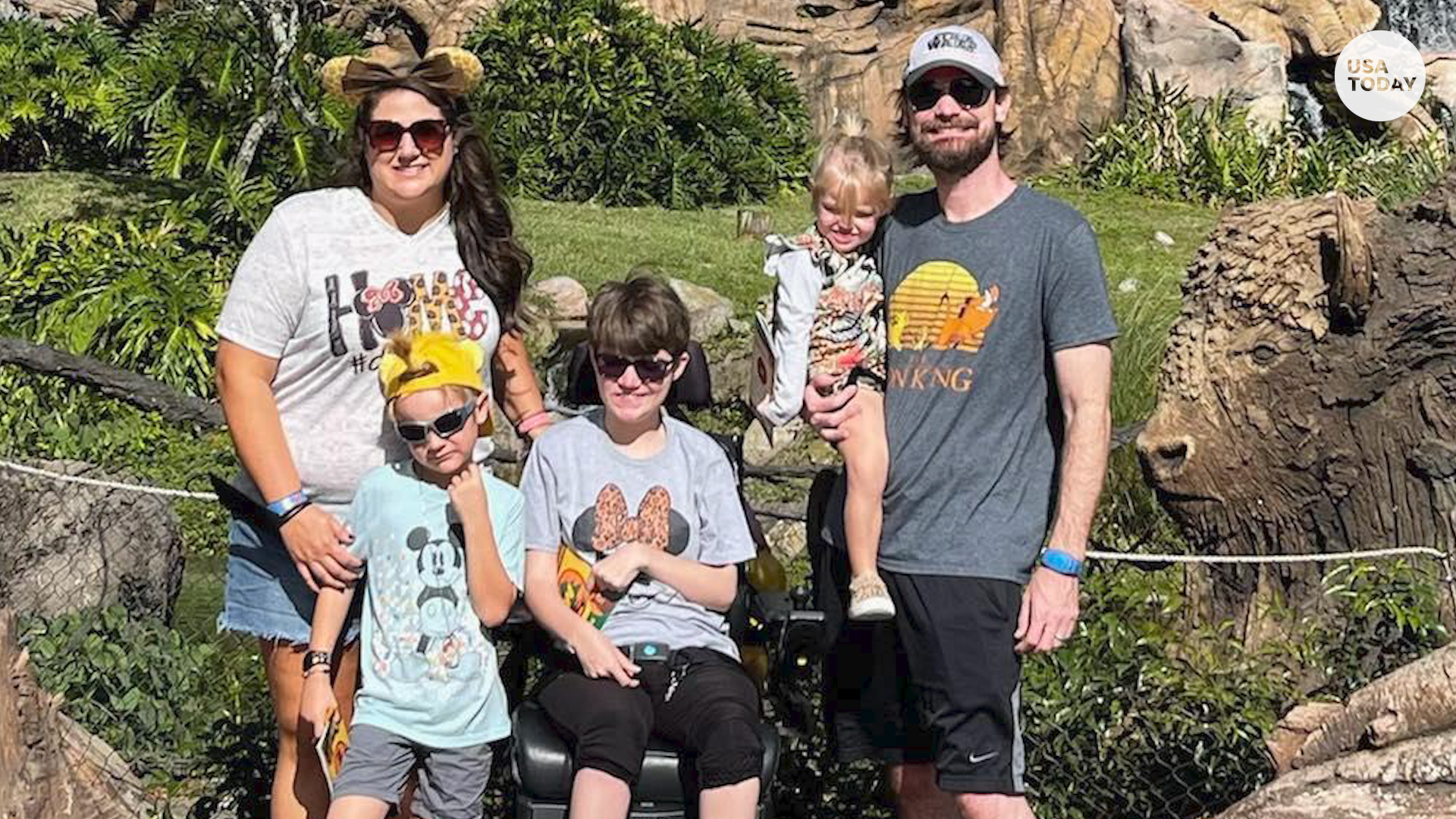Is my kid old enough to fly alone? Unaccompanied minor travel rules - USA TODAY

How you can prepare for this year's busy holiday travel season
Experts are predicting a busy holiday travel season. Here's what you need to know before heading to the airport.
Just the FAQs, USA TODAY
- Most kids as young as 5 should be developmentally ready to travel alone.
- Traveling alone can help kids to feel more responsible and become better problem solvers.
- Every airline has its own rules for minors traveling alone.
"Traveling together" is a five-part series focusing on family travel experiences and how they shape our relationships. If you'd like to contribute to our future reporting and share your experience as a source, you can fill out this quick form.
Carmen Wilson-Wright took their first solo flight from Baltimore to visit their grandparents in San Antonio when they were 8 years old.
Their mother is a travel journalist, so Carmen said it felt like a normal thing to do.
"I was already more of an experienced flyer, I've been flying since I was 10 days old," they said. "Honestly, I wasn't nerve-wracked at all. My mom had been preparing me for that basically my entire life."
Now 17, Wilson-Wright still flies alone at least three or four times per year, and said that knowing they can take care of themselves even when they're hundreds of miles from anyone they know has given them a strong sense of independence.
Most U.S. airlines will let children as young as five fly as unaccompanied minors, though restrictions and the required level of supervision vary by carrier and the passenger's age.
Go to Europe together: The 6 best spots on the continent for family travel
Child development experts told USA TODAY that letting kids fly unaccompanied can be a great way to help them develop their sense of self, and agreed that five was – developmentally speaking – a good age for most kids to start having that opportunity under the right circumstances.
Is my kid ready to fly alone?
Every child develops at a different rate and handles various situations in their own way, but psychiatrists generally agree that most should be able to handle flying alone from a pretty young age.
"Most people don't give kids enough credit," said Lea Lis, a child psychiatrist and author of "No Shame: Real Talk With Your Kids About Sex, Self-Confidence, and Healthy Relationships." "Unless your child has a developmental delay or something, they're perfectly capable of handling a trip."
Most airlines require unaccompanied minors to be escorted to their departure gate and met at their arrival gate by an adult guardian, and Lis said the way most airlines structure travel for solo kids helps give them a sense of independence without any real danger.
For subscribers: How much you can expect to pay at popular family vacation destinations
"It might be the first time they were given an opportunity to be away from their caregiver, and airlines and airports are extremely safe," she said. "It's giving them this sense of freedom without any real risk to their safety and security."
Marcel Green, a private practice psychiatrist in New York City, affiliated with Hudson Mind and The Children's Village, among other institutions, said that solo travel could also help kids become better problem-solvers.
"It nurtures the development of a cognitive skill called executive functioning, which refers to one's ability to coordinate and implement planning," he said. "Traveling alone represents an extremely important task, and if a kid is supported enough to master that task, it will correlate with swifter development."
How can I prepare my kids to fly by themselves?
Lis practices what she preaches. In 2017, her then 7-year-old daughter took a solo trip to Germany to visit a great aunt.
"They upgraded her to first class, and she loved it," Lis said.
While a luxe seat is hardly guaranteed for any young adventurer, there's plenty caregivers can do ahead of a trip to help kids be more calm and more comfortable.
"Make it fun instead of scary," Lis said. "Don't say, 'oh my God, this is going to be so hard for you,' say, 'this is going to be so fun for you.' "
The 10 best places to go with kids: Mexico, Aruba, West Virginia, Orlando and more
Disneyland vs. Disney World: What's the difference? How to choose which park to visit.
She added that doing something special like giving the kid a little gift – like a new book or toy – to unwrap on the plane could help make the trip even more exciting and provide a good distraction if they get bored or nervous.
Green said the key is making sure kids can handle other tasks independently first.
"Is the child able to perform an errand by themselves under the supervision of parents?" he said. "That would be a good gauge, and progressively making it more challenging," by giving them more involved errands that require being away from their normal support network for longer.
"You essentially want to see how emotionally balanced a child can be" when they're not with their family, Green said.
Ahead of a trip, he added, it's important to check in with the child to make sure they're feeling ready, too.
Story continues below.

How families with disabilities travel together
Bethany Hildebrandt is meticulous about planning trips around her family's needs as her eldest child, Kaylee, has cerebral palsy.
Payton Kirol, USA TODAY
"I would ask the child: How do you feel when you're alone? What do you do if you need help? Who would you talk to if you're upset? If you are upset, do you know how to reach your parent?" Green said.
Lis agreed that it's important for children traveling alone to memorize key contact info and know how to get in touch with someone who can help in an emergency. She also said some kids may just not be ready to travel by themselves.
"If a child is very anxious in general ... that's probably not the right child to send on a plane alone," she said. "If a child is adventurous and has that kind of spirit, they'll probably fare better."
In their experience, Wilson-Wright also said it's important for kids to be involved in planning and preparing for their own trip.
"Make sure you're packing your own carry-on," they said. "You want activities for your own plane ride. You want to choose what you want to do."
Will my kid act differently after taking a solo trip?
Flying without a parent can definitely help a kid feel more independent, and that could have positive knock-on effects at home and on future family trips, too.
"It could be correlated with improved behavior within the family unit as well as in other social settings where we expect children to behave," Green said.
Lis added that giving kids more responsibility should be a natural next step after they have taken a trip by themselves.
"Leverage that: 'You did this by yourself; what else can you do by yourself?' " she said. "'You're a kid who flew on a plane alone, you can make your own snack.' "
Story continues below.
Airline policies
Most airlines have similar rules for unaccompanied minors traveling. Here are the policies from the four largest carriers in the U.S.
► American Airlines unaccompanied minor policy
Kids as young as 5 can fly unaccompanied on American. The airline charges $150 each way for the service for solo kids or groups of siblings. Unaccompanied minors are entitled to priority boarding, kids-only lounges in the airline's hubs for those with connecting flights, a snack kit for travelers up to age 10 and escorts through the airport along with flight attendant supervision onboard.
Kids ages 15-17 are permitted to fly as standard passengers, but any unaccompanied traveler ages 5-14 is required to make use of the unaccompanied minor program. Those ages 5-7 are only allowed to travel on nonstop flights.
► Delta Air Lines unaccompanied minor policy
Kids as young as 5 can fly unaccompanied on some Delta flights. The airline charges $150 each way for up to four children to use the service, which includes priority boarding, kids-only lounges in the airline's hubs for those with connecting flights and escorts through the airport along with flight attendant supervision onboard.
Kids ages 15-17 are permitted to fly as standard passengers on any Delta flight, but all unaccompanied traveler ages 5-14 are required to make use of the unaccompanied minor program. Those ages 5-7 are only allowed to travel on nonstop flights.
► United Airlines unaccompanied minor policy
Kids as young as 5 can fly unaccompanied on United flights. The airline charges $150 each way for 1-2 kids to use the service, $300 each way for 3-4 kids and $450 each way for up to 6 kids. Unaccompanied minors on United must take nonstop flights and will be assigned a seat within 72 hours of booking. They are entitled to priority boarding and have a chance to meet the pilots before takeoff. Flight attendants check in with them during the flight as duties allow.
Kids ages 15-17 are permitted to fly as standard passengers on any United flight, but all unaccompanied traveler ages 5-14 are required to make use of the unaccompanied minor program.
► Southwest Airlines unaccompanied minor policy
Kids ages 5-11 can fly as unaccompanied minors on any direct Southwest flights (this includes both nonstop itineraries and those that do make a stop but don't require a change of planes). The airline charges $50 per child each way for its unaccompanied minor service, which entitles them to priority boarding and an escort and supervision on the plane.
Children 4 years old and younger or 12 years old and older are not eligible unaccompanied minor service on Southwest.



Comments
Post a Comment